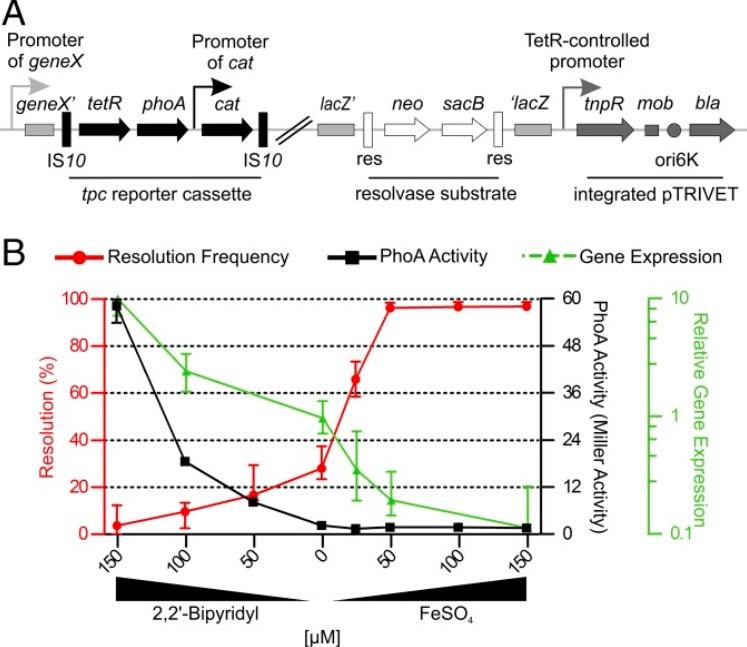Cat. #160861
TetR-controlled recombination-based in vivo expression technology (TRIVET) vector
Cat. #: 160861
Sub-type: Reporter
Availability: Please enquire for quantities and pricing
Target: Cholera
Bacterial Resistance: pTRIVET - ampicillin, tpc reporter cassette - chloramphenicol
Selectable Markers: PhoA activity
This fee is applicable only for non-profit organisations. If you are a for-profit organisation or a researcher working on commercially-sponsored academic research, you will need to contact our licensing team for a commercial use license.
Contributor
Inventor: Stefan Schild
Institute: University of Graz
Tool Details
*FOR RESEARCH USE ONLY (for other uses, please contact the licensing team)
- Tool name: TetR-controlled recombination-based in vivo expression technology (TRIVET) vector
- Alternate name: TRIVET
- Research fields: Microbiology
- Tool sub type: Reporter
- Bacterial resistance: pTRIVET - ampicillin, tpc reporter cassette - chloramphenicol
- Selectable markers: PhoA activity
- Description: This system is based upon recombination-based in vivo expression technology (RIVET) and allows the detection of transient gene silencing events even in a subset of a complex, heterogenous bacterial population. It requires all three components; the tpc reporter cassette, pTRIVET and pTRIVET1. It can be used as a random approach to identifyÄËĂÂĚżin vivoÄËĂÂĚżrepressed genes during intestinal colonization and as a specific approach to study conditional transcriptional silencing of a gene of interest. The protocol for which can be found at PMID: 33659431.
- Additional notes: Vibrio cholerae gene expression
Target Details
- Target: Cholera
Application Details
- Application notes: This system is based upon recombination-based in vivo expression technology (RIVET) and allows the detection of transient gene silencing events even in a subset of a complex, heterogenous bacterial population. It requires all three components; the tpc reporter cassette, pTRIVET and pTRIVET1. It can be used as a random approach to identify in vivo repressed genes during intestinal colonization and as a specific approach to study conditional transcriptional silencing of a gene of interest. The protocol for which can be found at PMID: 33659431.
References
- 33659431
- Cakar et al. 2018. Proc Natl Acad Sci U S A. 115(10):E2376-E2385. PMID: 29463743.




